Mystery book reviewer Oline Cogdill spoke to the Florida Chapter of Mystery Writers of America at the August meeting. Oline’s reviews have appeared nationwide as well as regularly in the Sun-Sentinel. Oline offered some useful tips for writers on repetitive elements to avoid in crime fiction.
· Strippers as murder victims or confidential informants are overused. Also, male writers seem to have an obligatory scene with a woman in front of a mirror fantasizing herself in this role. How many women secretly long to be a stripper? Not many.
· Coffee habits can take over the story. Count how many times your sleuth meets someone for a cup of coffee, drinks the coffee, heats up a mug of coffee, or tosses the empty cup in the trash. Go lightly in this regard.
· Restaurant scenes where a conversation occurs, and then the diners get up and leave in a huff before finishing their meal, are unrealistic. At least, have them sit down and finish eating or ask for a takeout box.
· Don’t neglect the kids or the pets. Show them being cared for and not being left alone at home or in a car. If you stay away all day, remember to let the dog out when you come home or to feed the cat.
· The sleuth shouldn’t wish for a murder to relieve her boredom. She should have a personal reason for getting involved in solving the crime. The death should be treated with gravity and respect.
· Don’t have your character rush out at night or go into a dark cellar alone without telling anyone or calling for backup.
· How many times is the cell phone left at home or runs out of its charge or there’s no signal? Don’t overuse this excuse. Just as important, if the phone rings, have your character answer it. Too often the ignored phone call means doom and gloom are in the next chapter.
· Less is more regarding graphic violence. It’s better left off-scene for the most part.
· Use the word “woman” instead of “girl,” where appropriate.
· Avoid the “talking killer” who explains the entire crime to the sleuth while holding a gun to her head.
· Talking animal stories don’t have to be silly. Treat them more seriously.
· And a non-story tip: Keep your website updated. Have a short bio, a longer bio, a good headshot, and author contact info. Do not play music in the background.
Oline spoke next about ethics among reviewers. She mentioned “sock puppets,” which are false online identities some people create to praise their own books and to trash others. Respected critical reviewers give objective opinions. It’s best for new authors to avoid paid reviews.
It was really fun hearing these clichés, some of which I’ve been guilty of using. Thanks to Oline, now we’ll all be more alert to these foibles in the future.
CLICK TO TWEET










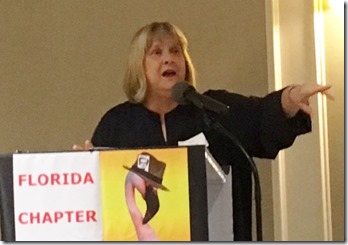
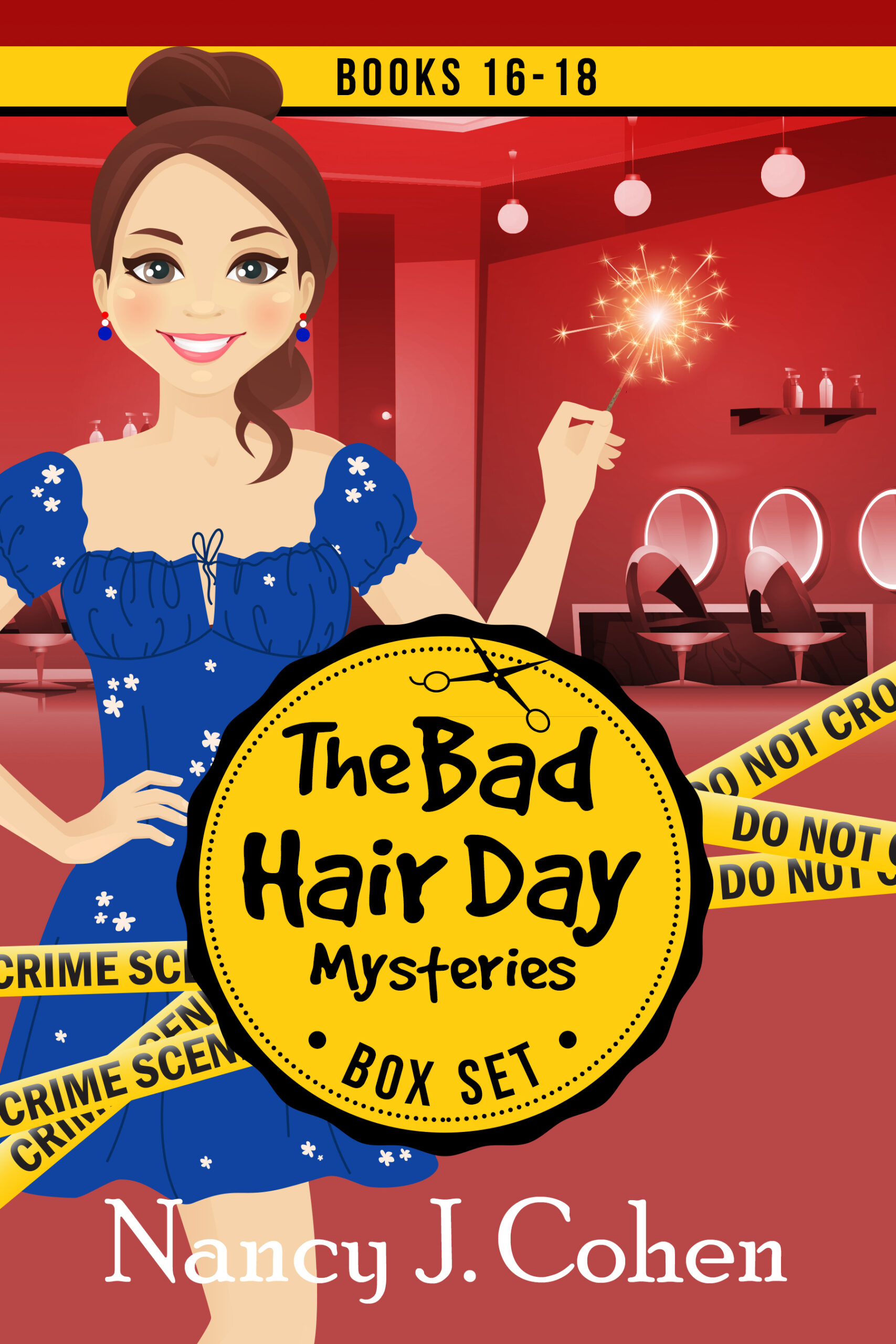







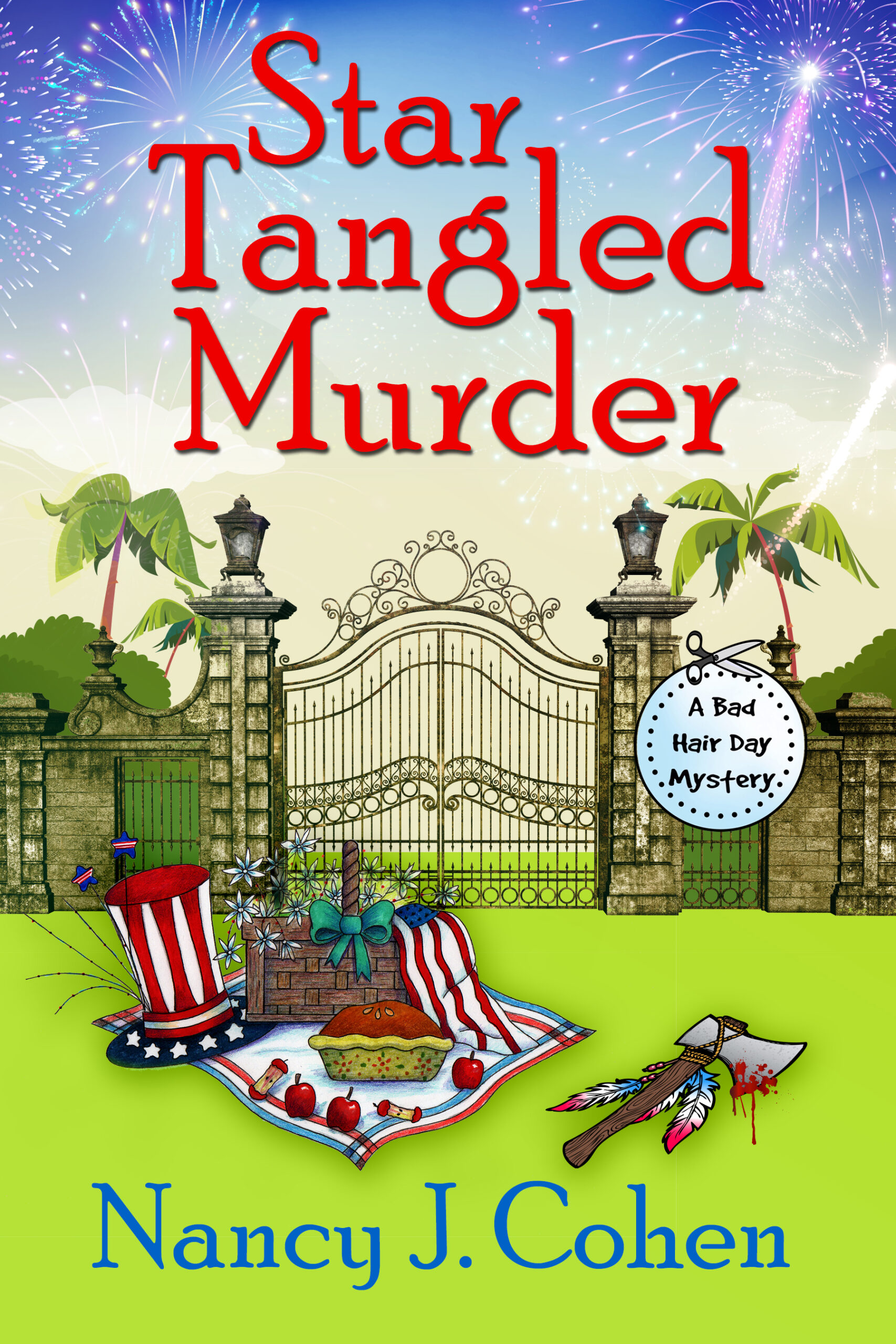

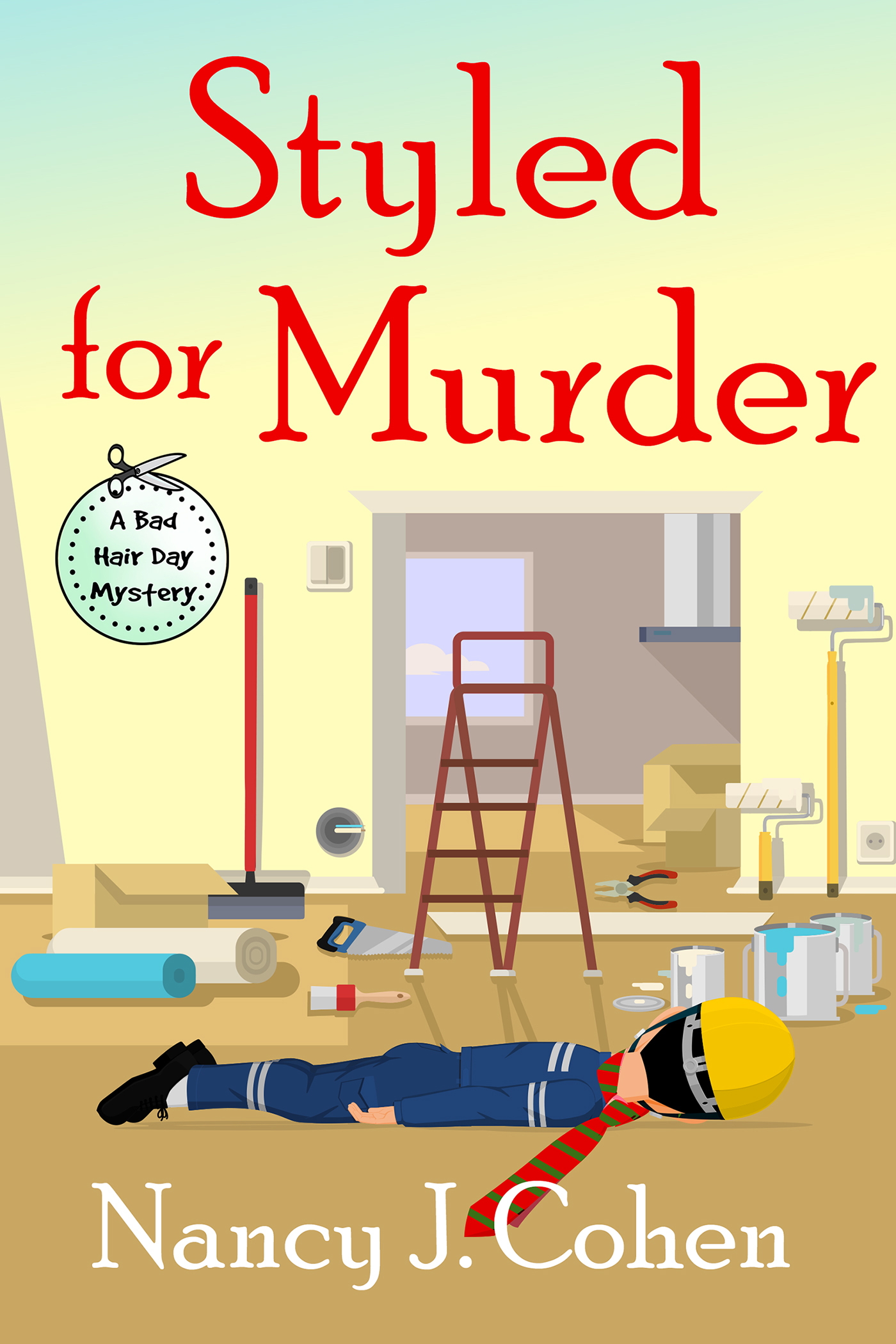
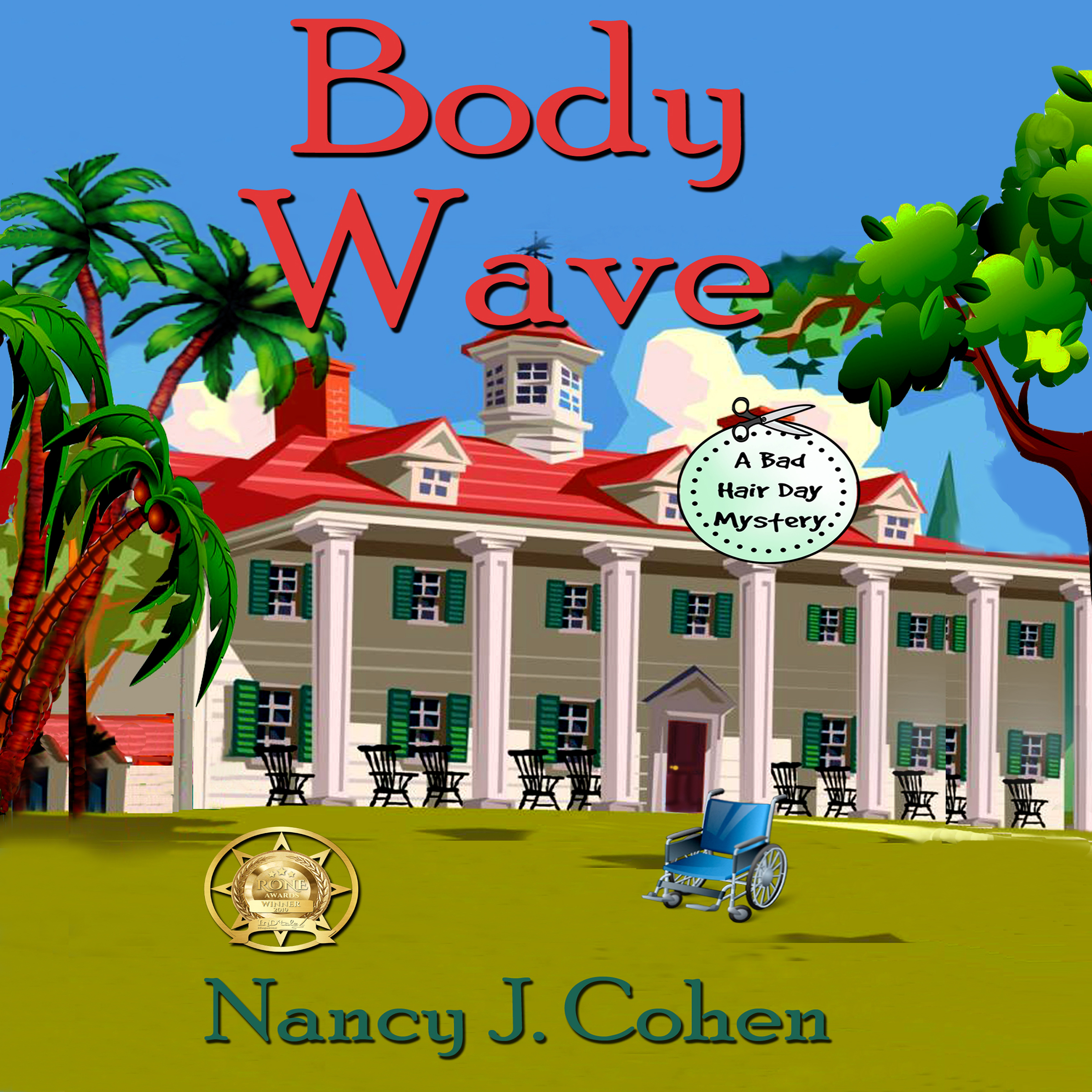


Fantasizing about being a stripper? Whoa…I obviously don’t read many male writers, bc I’d missed this one.
But speaking of sexism, I think you DO want your CHARACTER to say “girl” instead of woman, IF you intend to telegraph that your character is sexist, OR elderly(b/c if I’m 70 yrs old & you’re 40, then I’d call you a “girl” or “kid,” right?) Similarly, think about which characters will say “stewardess” and which say “flight attendant;” “secretary” or “administrative assistant;” get it? Some people say “girl,” some say “dame,” some say “moll,” “old lady” or “b****” It just depends on what you’re writing. But if you sound sexist, do so ADVISEDLY. As Oscar Wilde said, “A gentleman never *unintentionally* offends anyone.”
Yes, this is true, if it’s appropriate to the character. But I believe Oline was speaking about male writers who call women “girls” rather than have a character in the story say it as part of his persona. And hey–I still prefer the term “secretary.”
Yeah, I guess I’m SOOOoooo used to the first-person narrator, that if the WRITER says “girl,” he/she is saying it from the mouth(or head) of the protagonist/ detective whatever. So it almost always reflects something about your character, & how he thinks of women, or secretaries, or whatever.
Exactly! I say secretary, too; in fact, you CAN use the hyper-PC terminology to indicate that your character is some kind of officious, pedantic bean-counter.
I guess just the way she said it(or the way you summarized–sorry!) looks like such a categorical prohibition on the word “girl.” I’m sure the main point is just to be AWARE of the connotations of words. 🙂
It’s my error. I didn’t summarize what was meant well enough. She meant male writers calling all women “girls” and not necessarily from the viewpoint of characters in stories. Although in the case of first person, it can be one and the same. Anyway, you get the point.
I thought the discussion was on target and I’m just getting around to going through my notes.
Thanks for stopping by, Carol.
Thanks so much for posting these comments. I’m writing my first mystery and have already erred in least two areas: cups of coffee and meeting in restaurants.
It’s okay if they drink coffee and meet in restaurants, as long as it isn’t overdone.
Thanks, Nancy. I was so sorry that I couldn’t make this meeting. I’m glad you posted a recap. This is all great advice from Oline! For some reason, I couldn’t post using my Facebook signin.
I’m glad if this post is helpful to you, Wendy.
I will never drink another cup of coffee in front of Oline. Ever. TEASING! She’s great, and she’s right. Sigh. I have a lot of work to do!
You see people leaving restaurants all the time after they’ve had arguments in TV movies. Makes you wonder why they didn’t order a takeout box rather than leave their food behind.